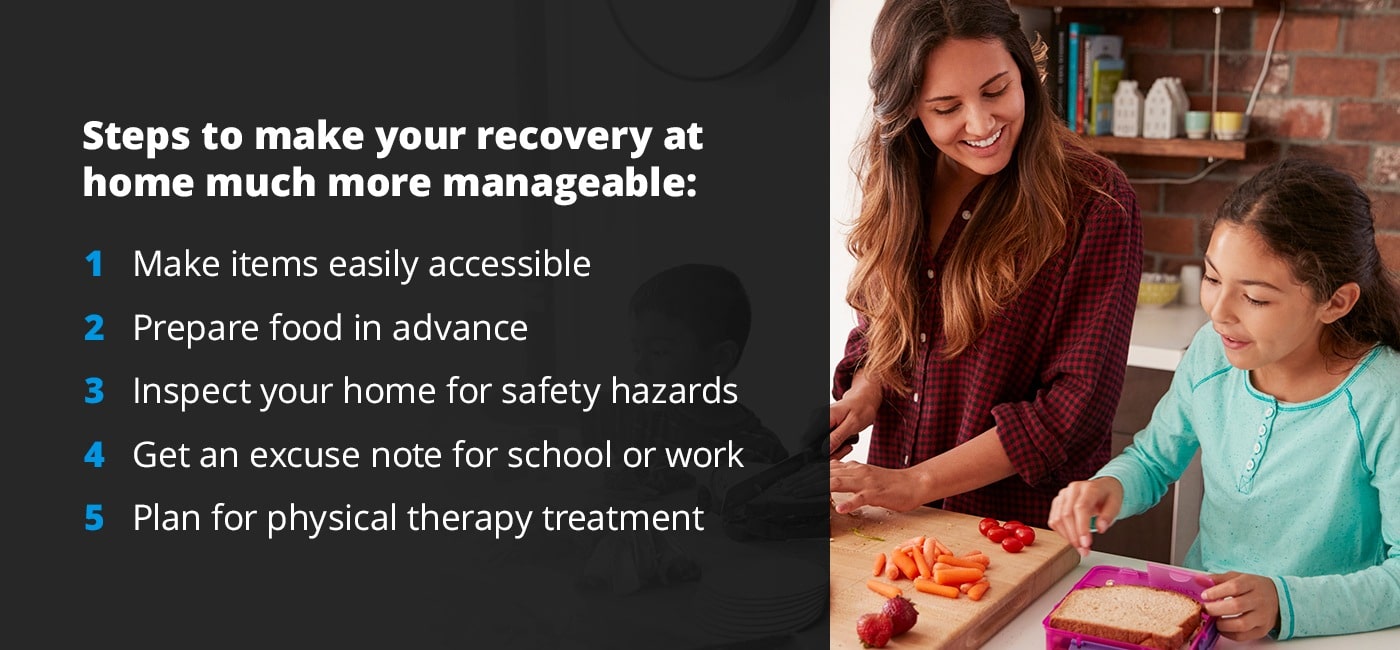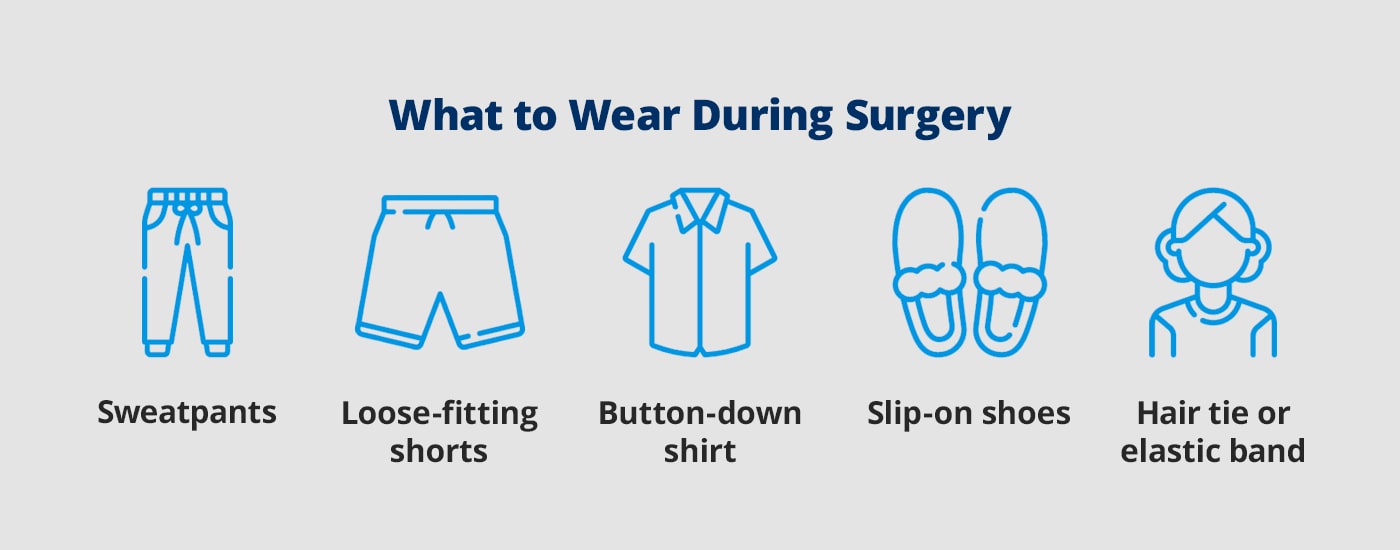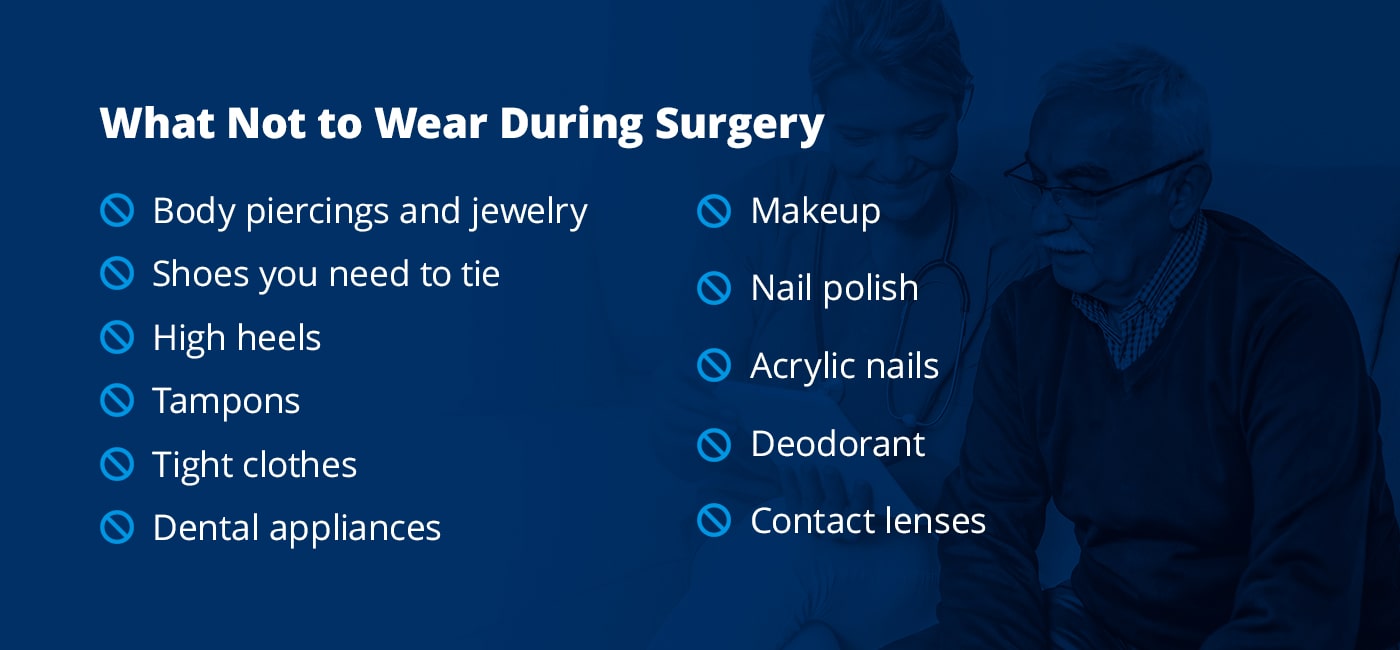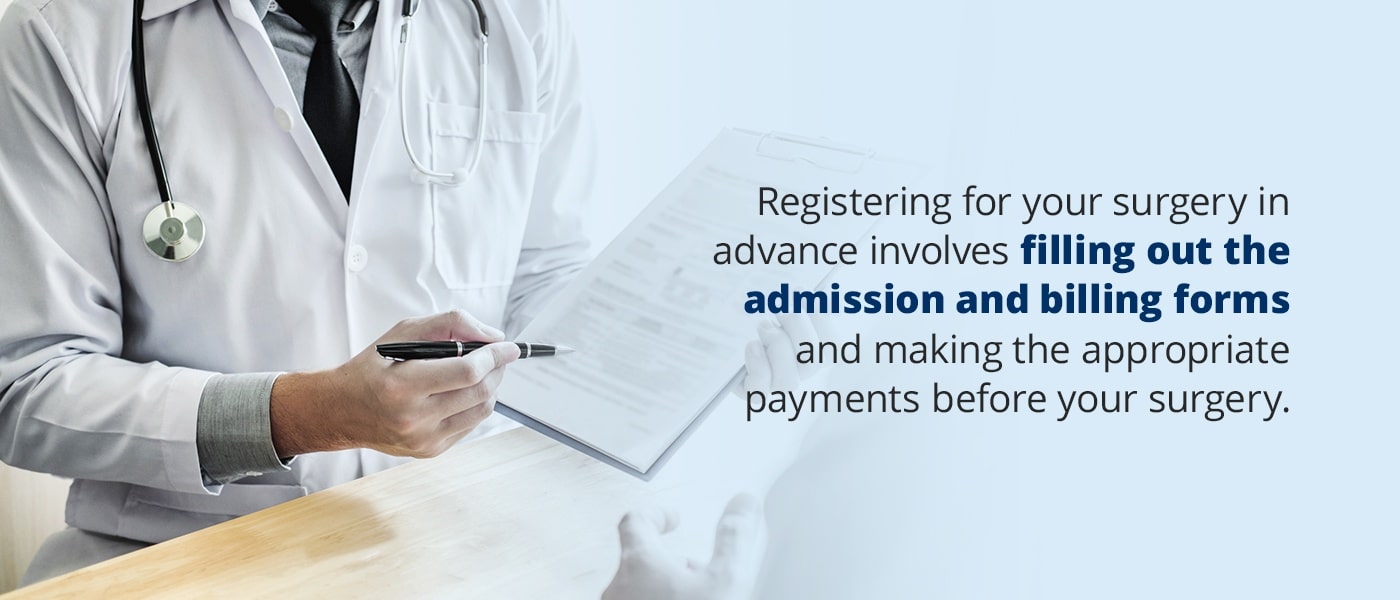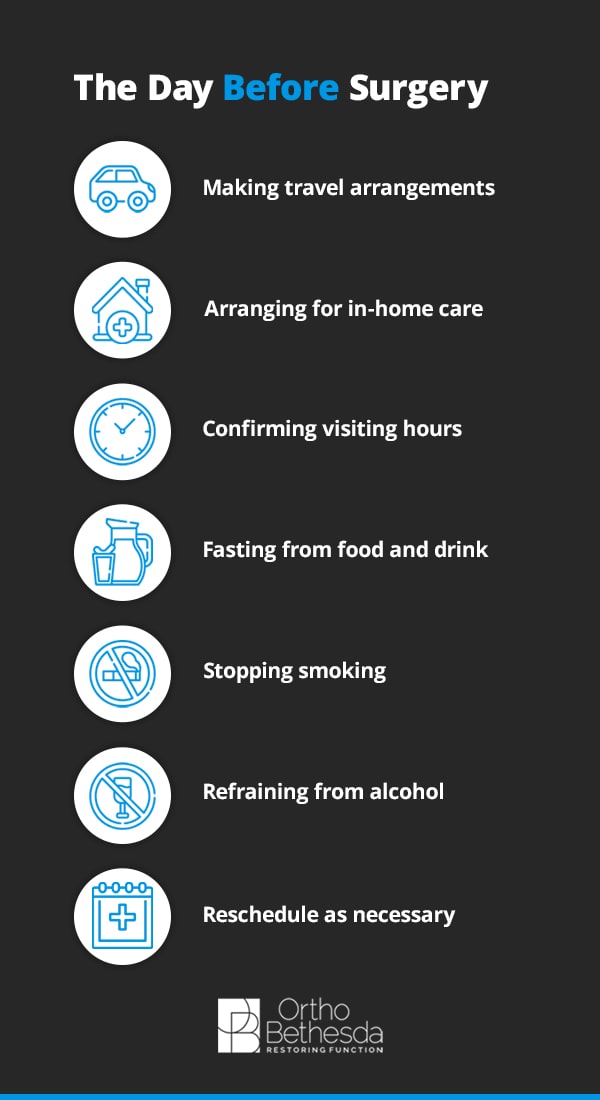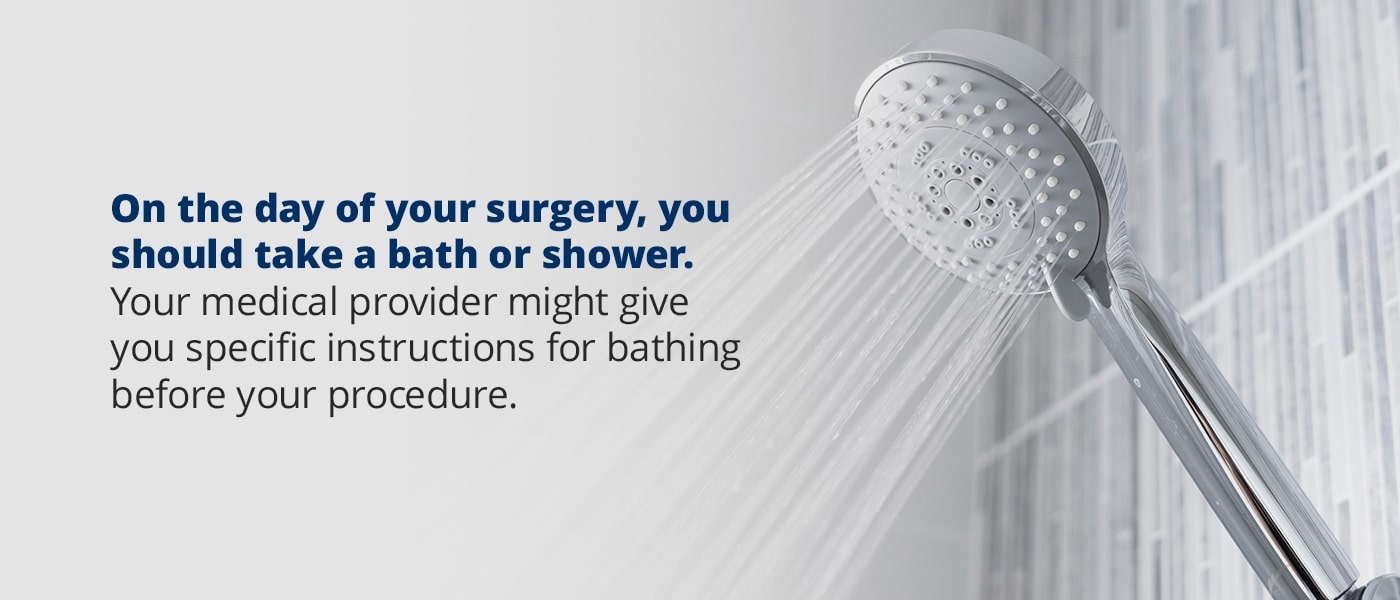
Your doctor has decided the best treatment for your medical condition is a surgical procedure. Preparing for surgery involves taking care of the details beforehand so everything can go as smoothly as possible. Besides all the instructions you need to follow before your specific surgical procedure, you’ll also need to find out what you can wear during surgery to be safe and comfortable.
Knowing what you can and can’t wear will help you prepare for your procedure and have peace of mind on the day of your surgery. Discover what to pack for your day surgery and what clothes are beneficial for your recovery below.
What Should I Do Before My Surgery?
The type of procedure you’re getting affects the preparations you’ll need to make beforehand. Follow these steps to make your recovery at home much more manageable:
- Make items easily accessible: You might not be able to use certain body parts for a short time after your surgery. Store the appliances and dishes you often use in an easily accessible cabinet or on the counter. Avoid high or low shelves that may require you to use a step stool or kneel.
- Prepare food in advance: Since cooking might be difficult after surgery, it helps to make some food and freeze it before your procedure. You may also want to stock up on healthy frozen dinners so you have something quick to eat.
- Inspect your home for safety hazards: Walk through your house and remove items that could cause tripping or falls while you recover. Move electrical wires and cords to the wall. Temporarily take rugs off the floor and put a non-skid mat in your bathtub or shower. It’s also helpful to make sleeping arrangements on the main level to limit climbing up and down the stairs if possible.
- Get an excuse note for school or work: Ask your medical provider for a letter to excuse you from school or work during your procedure and recovery. Request assignments from your teachers in advance if your surgery will take place during the school year. Try to complete as many projects as you can before surgery without stressing yourself out. Communicate your upcoming absence to coworkers if necessary, as well, and let them know whether they can reach you during your recovery.
- Plan for physical therapy treatment: Depending on your surgical procedure, you may need to participate in physical therapy as part of the recovery process. You’ll want to schedule this and discuss your options with your surgeon before your procedure so you can research physical therapy facilities and prepare for treatment.
What to Wear During Surgery
It’s best to wear loose, comfortable clothing during your surgical procedure. Think about where you’re getting surgery to figure out what clothes would best accommodate your incision site and the dressing that’ll go over it during recovery. You may want to wear clothes with wide arm and leg holes so the material doesn’t rub against the incision site. The following loose-fitting items are acceptable for surgical attire:
- Sweatpants: Loose workout pants or sweatpants with an elastic band puts less pressure on your abdomen and helps you recover during hernia or hip surgery.
- Loose-fitting shorts: Wear shorts if you’re having knee surgery to prevent your pants from rubbing against the dressing after the procedure.
- Button-down shirt: A shirt with buttons in the front is easy to take off and put on as you change into your hospital gown.
- Slip-on shoes: Wear shoes that are easy to remove and put on, especially if you’re getting hand or wrist surgery and won’t be able to easily put on or tie your shoes.
- Hair tie or elastic band: You may want to put your long hair into a ponytail or braid with an elastic band before surgery so it’s out of the way.
Once you register for your procedure at the facility, the surgical team will ask you to remove your clothes and put on your hospital gown. You may want to bring a backpack or small bag to store your clothes in.
What Not to Wear During Surgery
What you have on before the surgery is what you’ll be wearing when you recover in the hospital or outpatient facility. As you choose what clothes you can wear during surgery, leave these items at home:
- Body piercings and jewelry: It’s best to leave all jewelry at home, including your wedding ring. Talk to your specialist if you can’t get your wedding ring off your finger. They might be able to put plaster or tape over your it to protect it from damage.
- Shoes you need to tie: Wear shoes you can easily slip on and off. Depending on the type of surgery you get, you may also have difficulty bending down or tying your shoes with your hands.
- High heels: You’ll want to avoid wearing high heels, especially if you’re having ankle or foot surgery. High heels are challenging to walk in, and you might have difficulty keeping your balance after your procedure.
- Tampons: Avoid wearing tampons on the day of your surgery if you have your period. The hospital should provide a pad for you to wear during the procedure. You can wear a tampon during recovery.
- Tight clothes: Tight pants, underwear, pantyhose and knee-high stockings might be uncomfortable to wear after your hip or abdominal surgery. You might also have a difficult time getting your pants back on after your procedure.
- Dental appliances: Remove your dentures, retainers or elastic bands from braces to prevent loss or damage during surgery.
- Makeup: Avoid wearing makeup so your doctor can accurately check your skin to make sure your circulation is healthy during the procedure. Makeup can also cause an eye injury when you’re under anesthesia and don’t have a blink reflex.
- Nail polish: Remove nail polish before your operation so the surgical team can monitor the circulation in your fingers. Nail polish may block the pulse oximeter, a small machine that attaches to your finger to monitor your pulse and breathing.
- Acrylic nails: You’ll probably have to file down or remove at least two of your acrylic or press-on nails, one from each hand, so the surgical team can use the pulse oximeter.
- Deodorant: Deodorant and other skin products can leave a residue on your skin that may affect the incision site during shoulder surgery.
- Contact lenses: You shouldn’t wear contacts when you sleep, and you’ll essentially be asleep for your surgical procedure. Avoid wearing contact lenses and wear glasses on the day of your surgery instead.
What Should I Pack for My Day Surgery?
Your surgical procedure may only take a day, but your doctor or nurse might recommend you stay overnight to recover. Bring the following items with you for your time at the hospital or outpatient facility:
- Insurance card
- Photo ID
- Any co-payments you still need to make
- Cane, crutch or walker if you used one before surgery
- Your caregiver and general practitioner’s contact information
- The medication you usually take and the list of doses
- Pen and notebook
- A small amount of cash
- A book or magazine
Ask your nurse if you’re allowed to use headphones or electronic devices during your stay if you’d like to bring them. You could also pack these toiletries and personal care items for your day surgery:
- Toothbrush and toothpaste
- Glasses and case
- Contacts to change into after surgery and contact solution
- Deodorant
- Hairbrush or comb
- Small hand towel
- Sanitary pads or tampons
- Razor and shaving cream
- Shampoo and conditioner
- Soap
- Lotion
- Clean underwear
- Robe
- Slippers or no-slip shoes for walking in the hallway
The hospital or outpatient facility you visit for surgery may provide some of those personal care items during your recovery stay. You can either confirm ahead of time what they provide or bring your own to have personal comforts during your recovery.
How to Prepare for Surgery
After you’ve figured out what to wear and you’ve packed your bag, you can prepare yourself for surgery in the following ways.
Pre-Registration
Registering for your surgery in advance involves filling out the admission and billing forms and making the appropriate payments before your surgery. You may also want to bring relevant documents that highlight your medical history from other healthcare providers so the surgical team has all the information they need. Take care of these details before your surgery to help you focus and have peace of mind before your procedure. Consult your medical provider about how to pre-register.
Pre-Operative Assessment
You may have to fill out a pre-operative assessment in person, online or over the phone for your nurse or doctor to analyze your health before surgery. Your medical provider may also want to conduct some tests, including a blood test, urine sample or pregnancy test, if they ask you to come in person. They use these tests to determine whether you have medical conditions they’d need to treat or address before your operation. Check with your physician to see what assessments you need for your surgical procedure.
During this appointment, your surgeon will also tell you:
- If you’ll stay in the hospital overnight and for how long
- If you’ll need to refrain from eating or drinking the night before or the day of your operation
- What to bring to the hospital or outpatient facility
- If you can take your usual medications before your procedure
The Day Before Surgery
A medical professional from the hospital or outpatient facility should contact you the day before your procedure to confirm the information they need and answer any final questions you have. They’ll usually tell you what time you’ll need to arrive and confirm fasting requirements and what medications are safe to take before the surgery.
You can prepare for your surgical procedure the day before by:
- Making travel arrangements: You won’t be allowed to drive or take public transportation if the surgical team has to sedate you or put you under anesthesia. Ask a friend or family member to bring you to your surgical appointment. Give them plenty of notice to make the proper arrangements, and confirm the details with them the day before your procedure. The hospital or outpatient facility may also be able to arrange transportation for you if you don’t have friends or family nearby.
- Arranging for in-home care: It’s best to have someone stay with you for at least half a day if you need to go under general anesthesia. Give your family and friends plenty of time so they can take time off work if necessary. Confirm the details of your surgical appointment and recovery with them the day before your procedure.
- Confirming visiting hours: Check with the hospital or outpatient facility about when people are allowed to visit. It’s also helpful to know what health and safety regulations are in place so you can tell your friends and family.
- Fasting from food and drink: You’ll need to avoid eating or drinking — possibly including plain water, chewing gum and mints — if your surgery has specific fasting requirements to reduce adverse side effects from anesthesia. Alert your medical team if you have diabetes so they can take the necessary precautions during your procedure. Alert your doctor or nurse if you ate or drank before your surgery. In that case, you might have to reschedule.
- Stopping smoking: Smoking enhances your risk of complications during surgery, including heart attack, blood clots and pneumonia. Stop all types of smoking, including e-cigarettes and vaping, as early before your surgery as possible. Your doctor or nurse will recommend you refrain from smoking at least the day before your procedure. When you arrive for your appointment, be honest with the surgical team about the last time you smoked so they can treat you accordingly.
- Refraining from alcohol: Drinking alcohol soon before your procedure could enhance adverse side effects from the anesthesia. Your surgical team will usually recommend avoiding alcohol consumption at least a day before your surgery.
- Reschedule as necessary: Let your surgical team know as soon as possible if you develop a cold or fever or if you have to reschedule your appointment for any reason.
The Morning of Surgery
On the day of your surgery, you should take a bath or shower. Your medical provider might give you specific instructions for bathing before your procedure. Since you’ll be fasting, avoid swallowing or ingesting any water when brushing your teeth. Remember not to apply toiletries, makeup, nail polish or hair spray as you get ready.
You’ll receive a bracelet with your name and an identification number on it when you register at the hospital or outpatient facility. After check-in, you’ll go to the operation area, where a nurse will take your blood pressure and ask you whether you’ve eaten, drank or smoked before arrival or if there’s a chance you might be pregnant. You must answer honestly so the surgical team can be aware of anything that could complicate your surgical procedure.
Most hospitals make women at a childbearing age take a urine pregnancy test to ensure they’re not pregnant, even if they’re not sexually active. This test will take place in a private setting so you can be honest and ask questions. Let your doctor or nurse know if you think you could be pregnant.
After Surgery
The surgical team will bring you to a recovery room after your procedure, where your nurse will monitor your vitals and give you any medication prescribed by your doctor. Feeling cold is a side effect of the anesthesia, and you can ask your nurse for a blanket if you need it. The nurse can also give you juice, ginger ale or water if you’re thirsty and have permission from your doctor to drink.
Before you’re allowed to leave the hospital or outpatient facility, you’ll need to pass urine. When you’re comfortable and awake, your nurse will prepare you to go home by removing your IV and reviewing your recovery instructions with you.
Recovery at Home
Your surgeon will offer post-operative treatment instructions for recovery from your specific surgery. You’ll want to make arrangements to have a family member or friend help you around the house after your procedure. The nurse will give you and your caregiver a set of instructions before you leave. Consult your surgeon if you experience any unusual or uncomfortable symptoms during recovery.
Avoid signing any legal documents for at least a day after your surgery because you might have a lapse in judgment from the anesthesia. It’s also best to refrain from drinking alcohol, driving or operating machinery as you recover over the next day.
The length of your recovery period depends on what type of surgery you had, your personal goals and your overall physical health. You’ll need to eat healthy foods, stay hydrated, rest and take care of the incision site to recover quickly. Remember to attend all your post-operative appointments, as well. You can consult your medical provider about what you can and can’t do to have a speedy recovery free from complications.
What to Wear During Surgery FAQs
For more information about what you can wear on surgery day, browse through these frequently asked questions. Your physician can also provide more details about what clothes would be most comfortable during your specific surgical procedure.
Why Can’t You Wear Jewelry During Surgery?
You can’t wear jewelry during surgery because it can get lost or damaged in the operating room. It might also carry bacteria that could infect the surgical site. Instead, it’s best to leave all jewelry and body piercings at home on the day of your surgical procedure.
Why Can You Not Wear Deodorant During Surgery?
You can’t wear deodorant during surgery because it can leave a residue on your skin that’s difficult to remove. This residue might make it challenging for the surgeon to cut through the incision site or accurately assess your skin circulation during surgery.
Do You Wear Clothes During Surgery?
During surgery, you wear a hospital gown. After you’ve recovered and are ready to be discharged from the facility, you can change into the clothes you wore when you first arrived. You may want to bring a change of underwear and some toiletries to freshen up before going home.
What Do You Wear Under a Hospital Gown?
In most cases, you only wear your underwear underneath your gown when you have a surgical procedure. When you arrive at the hospital or outpatient facility, your nurse will tell you what clothes you can keep on under your gown, depending on your surgical site.
Can You Wear Hairspray During Surgery?
No, you can’t wear hairspray during surgery. Hair products could be flammable and may be dangerous to have in the operating room. It’s best to put your hair up in a braid or ponytail so it can be out of the way.
Can You Wear a Bra for Surgery?
You usually don’t need to wear a bra during surgery because you’ll have the hospital gown and a surgical drape over your chest. You may want to invest in a bra that’s easy to put on and remove if you’re getting arm or shoulder surgery.
Contact OrthoBethesda for Orthopedic Care
Our team of experienced medical professionals at OrthoBethesda in the Bethesda, Maryland, area will provide you with the utmost care for your bone and joint condition. We choose a conservative, non-invasive treatment before we consider surgery as an option.
If we determine surgery is the best treatment for you, our professional orthopedic surgeons provide state-of-the-art surgical procedures that can relieve pain and improve your recovery. Reach out to us online or call (301) 530-1010 to schedule an appointment.
Related Content
- Arthritis vs. Arthrosis
- Common Types of Arthritis Explained
- Types of Bursitis
- Consequences of Delaying Medical and Surgical Care
- Winter Injury Prevention Guide
- Inpatient Surgery vs. Outpatient Surgery
- Why Your Joints Are Cracking
- What Does an Orthopedic Doctor Do?
- How to Prevent Osteoporosis
- Types of Common Outpatient Surgeries


